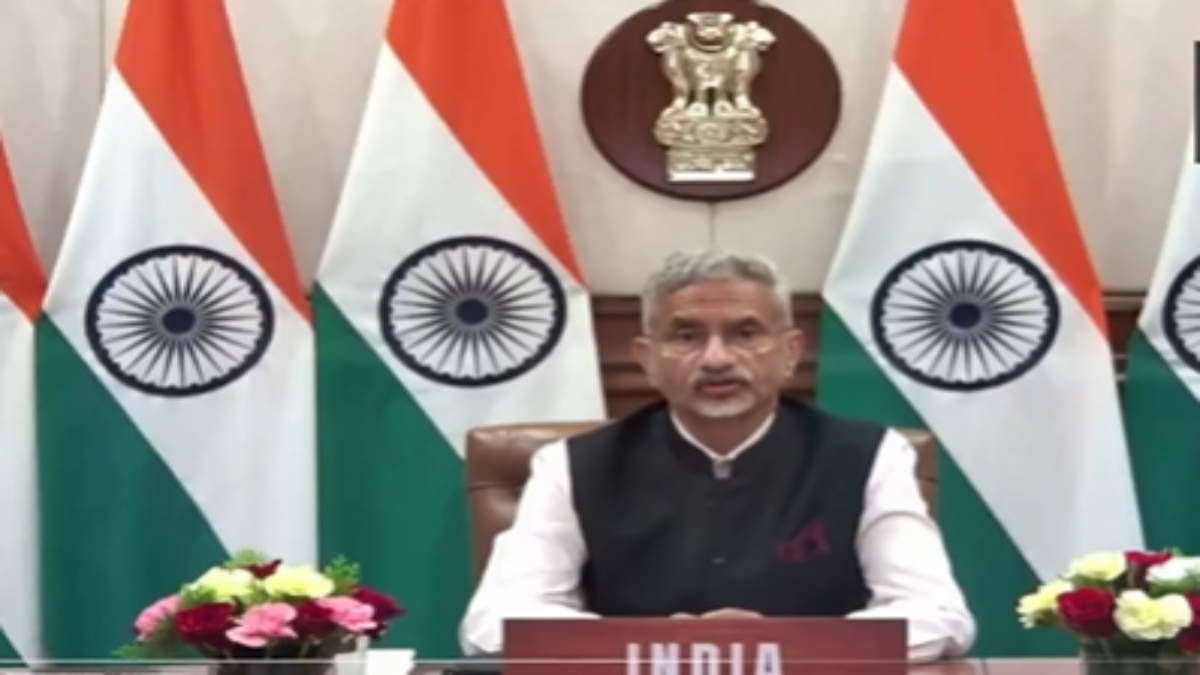External Affairs Minister S Jaishankar on Monday said that economic practices must be fair, transparent and to everyone’s benefit in the environment of global uncertainty.
Addressing the Brics Summit virtually — called by Brazilian President Luiz Inácio Lula da Silva to discuss tariffs imposed by US President Donald Trump — Jaishankar said, “The world as a collective is seeking a stable and predictable environment for trade and investment. At the same time, it is imperative that economic practices are fair, transparent and to everyone’s benefit. When there are multiple disruptions, our objective should be to proof it against such shocks. That means creating more resilient, reliable, redundant and shorter supply chains.”
#WATCH | During the virtual Summit of BRICS Leaders, EAM Dr S Jaishankar says, “The world today also seeks an urgent resolution of ongoing conflicts. The Global South has experienced a deterioration in its food, energy and fertilizer security. Where shipping is targeted, not just… pic.twitter.com/6XbCRbYK4I
— ANI (@ANI) September 8, 2025
He said it is also essential that we democratise manufacturing and production and encourage their growth in different geographies.
“Progress in that regard will contribute to regional self-sufficiency and relieve anxieties at times of uncertainty,” he added.
Sounding a cautionary note, Jaishankar said that the current state of global affairs, marked by the tumult of the COVID-19 pandemic, conflicts in Ukraine and West Asia, trade volatility, extreme climate events, and a lagging Sustainable Development Goals (SDG) agenda, has left the international multilateral system faltering under pressure.
“That so many serious stresses are being left unaddressed is understandably having consequences for the global order itself. It is this cumulative concern that the BRICS is now discussing,” he said.
He emphasised the inherent diversity of the Brics group, stating that member nations, despite their differences, remain deeply affected by these unfolding global crises.
“Even in the past, our endeavour has been to find common ground between our respective national policies and to act on that basis. Today, the focus is on stabilising the international economy and the world order. But it is equally essential that we turn our attention to ongoing conflicts, not least because they have direct developmental and supply chain implications. Furthermore, as we head towards the next UN General Assembly Session, an exchange of views on reforming multilateralism would be appropriate,” said the minister.
On economic cooperation, Jaishankar called on Brics countries to lead by example in promoting sustainable trade, warning against rising trade barriers and the politicisation of trade measures.
“Increasing barriers and complicating transactions will not help. Neither would the linking of trade measures to non-trade matters. The Brics itself can set an example by reviewing trade flows among its member states. Where India is concerned, some of our biggest deficits are with BRICS partners and we have been pressing for expeditious solutions. We hope that this realisation will be part of the takeaways from today’s meeting,” said Jaishankar.
#WATCH | During the virtual Summit of BRICS Leaders, EAM Dr S Jaishankar says, “Trade patterns and market access are today prominent issues in the global economic discourse. The world requires constructive and cooperative approaches to promote trade that is sustainable.… pic.twitter.com/xK2KDwq8y8
— ANI (@ANI) September 8, 2025
Reaffirming India’s commitment to core international trade principles, he said firmly that the global trading system must remain open, fair, transparent, non-discriminatory, inclusive, equitable, rules-based, and provide special and differential treatment for developing countries.
“India strongly believes that this should be protected and nurtured,” he said.
On security, Jaishankar highlighted the plight of the Global South, where food, fuel, and fertilizer security have deteriorated amid ongoing conflicts.
“Where shipping is targeted, not just trade but livelihoods also suffer. A selective protection cannot be a global answer. An early end to the hostilities and undertaking diplomacy to ensure a durable solution is the obvious pathway before us,” he said.
He further criticised shortcomings in global institutions, pointing to gridlocked decision-making systems that have failed to deliver common-ground outcomes, making the case for urgent reform of multilateral bodies, especially the United Nations Security Council.
#WATCH | During the virtual Summit of BRICS Leaders, EAM Dr S Jaishankar says, “The members of BRICS represent a broad diversity of societies who are nevertheless deeply affected by these developments. Even in the past, our endeavour has been to find common ground between our… https://t.co/CmwHci7jAt pic.twitter.com/NvdfOfV19Z
— ANI (@ANI) September 8, 2025
“On key issues, we have unfortunately seen that gridlocks have undermined the search for common ground. These experiences have only made the case for reformed multilateralism generally, and that of the United Nations and its Security Council specifically, more urgent. The Brics have taken a positive view of this need for reform and we expect that it would collectively become a strong voice for much awaited change,” said Jaishankar.
Jaishankar said even as Brics addresses pressing policy challenges, it should not lose sight of the existential threat posed by climate change.
“Sadly, both climate action and climate justice are currently slipping in global priorities. We need new thinking and initiatives as well. I commend the International Solar Alliance, the Coalition for Disaster Resilient Infrastructure and the Global Bio-fuels Alliance for your consideration,” he added.
With inputs from agencies
End of Article

)

